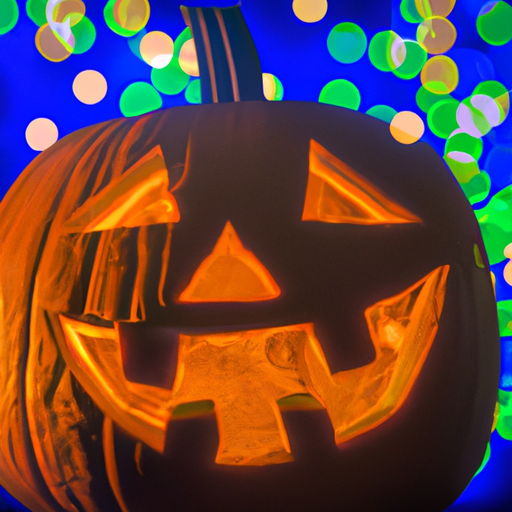Is Halloween Capitalized? Find Out Top 8 Bewitching Secrets of Capitalization
Have you ever wondered if the word “Halloween” should be capitalized? Well, the answer may surprise you. In this article, we will explore the capitalization rules for the word “Halloween” and provide you with a definitive answer. So, whether you’re writing a spooky Halloween-themed blog post or simply curious about grammar and punctuation, keep reading to unravel the mystery of whether “Halloween” should be capitalized.
Is Halloween Capitalized?
If you’re wondering whether Halloween should be capitalized, you’re not alone. Capitalization is an important aspect of writing, and it’s essential to understand the rules to ensure correctness. In this article, we will explore the rules of capitalization and specifically address the capitalization of Halloween. So, let’s dive in and find out if Halloween should be capitalized!
Introduction to Capitalization
Before we delve into the capitalization of Halloween, it’s crucial to understand the importance of capitalization in writing and the general rules that govern it.
Importance of Capitalization in Writing
Capitalization plays a significant role in clarifying meaning and providing structure to written language. By appropriately capitalizing words, we distinguish between proper nouns, which refer to specific people, places, things, or events, and common nouns, which refer to general ideas or concepts.
Capitalization also helps in creating headings and titles, highlighting important words, and ensuring grammatical accuracy. It is a fundamental aspect of writing that enhances readability and comprehension.
General Rules for Capitalization
- Capitalize the first word of a sentence: This rule applies irrespective of the type of word, whether it is a noun, verb, or adjective.
- Capitalize proper nouns: Proper nouns refer to specific names of people, places, things, or events.
- Capitalize the pronoun ‘I’: The pronoun ‘I’ is always capitalized, regardless of its position within a sentence.
- Capitalize titles and headings: In titles and headings, capitalize the significant words, including nouns, verbs, adjectives, and adverbs. However, minor words like articles, prepositions, and conjunctions are usually not capitalized unless they are the first or last word in the title or heading.
Now that we have a basic understanding of capitalization, let’s explore the capitalization of Halloween.
Capitalization of Halloween
Definition of Halloween
Halloween is a holiday celebrated annually on October 31st, primarily in Western countries. It originated from the ancient Celtic festival of Samhain, which marked the end of the harvest season and the beginning of winter.
Is Halloween a Proper Noun?
To determine if Halloween is a proper noun, we need to consider its classification. Proper nouns refer to specific names of people, places, things, or events. Common nouns, on the other hand, are general ideas or concepts.
In the case of Halloween, it is a proper noun because it refers to a specific holiday. As a result, we should capitalize the word Halloween when using it in writing.
Capitalization of Halloween in Titles
When using Halloween in titles, we follow the general rule of capitalizing the significant words. Therefore, we capitalize the word Halloween in titles such as “Spooky Decorations for Halloween” or “Best Halloween Costume Ideas.”
Capitalization of Halloween in Sentences and Texts
In sentences and texts, we capitalize Halloween when it is used as a noun. For example, “I can’t wait to celebrate Halloween with my friends” or “She dressed up as a witch for Halloween.” However, when Halloween is used as an adjective, it is not capitalized. For instance, “She attended a Halloween party in a spooky costume.”
Other Capitalization Rules to Consider
While we have addressed the capitalization of Halloween specifically, it’s essential to be aware of other capitalization rules that may arise in your writing.
Capitalization of Adjectives Derived from Proper Nouns
When using adjectives derived from proper nouns, such as American, Italian, or Halloween-inspired, these adjectives should be capitalized. For example, “She served delicious Italian pasta for dinner” or “He carved a spooky Halloween-inspired pumpkin.”
Capitalization of Acronyms or Initialisms
Acronyms or initialisms, which are words formed from the initial letters or parts of a series of words, should be capitalized. For instance, NATO (North Atlantic Treaty Organization) or NASA (National Aeronautics and Space Administration).
As a writer, it’s crucial to adhere to these capitalization rules to ensure accuracy and maintain professionalism in your writing.
Examples of Capitalization Usage
To further illustrate the rules of capitalization, here are some examples:
- Incorrect: “i went to paris last summer.” Correct: “I went to Paris last summer.”
- Incorrect: “the eiffel tower is a famous landmark in france.” Correct: “The Eiffel Tower is a famous landmark in France.”
- Incorrect: “he loves playing basketball, football, and baseball.” Correct: “He loves playing basketball, football, and baseball.”
Conclusion
In conclusion, Halloween is a proper noun, and it should be capitalized when used in writing. Whether you’re writing a title, a sentence, or a paragraph, remember to capitalize Halloween to adhere to the rules of capitalization. By following these guidelines, you will ensure clarity and correctness in your writing. Happy Halloween!













